Group therapy is a specific form of psychotherapy that is provided by one or more therapists, to a group of people, at the same time. Studies show that when administered properly, group therapy can be as effective as individual therapy.
dThe guiding principle of group therapy for substance abuse is “power in numbers.” The ultimate goal of group therapy is to create a sense of belonging or relatability through understanding, which happens when group members share their common experiences with drug and alcohol addiction. Group therapy provides those in recovery from substance use disorders with peer support and accountability in an environment where they can learn new skills and coping mechanisms from each other.
This article explains group therapy, including how it works, what it helps with, and who it is for.
Nearby Rehabs that Offer Group Therapy
Loading visitor information…
What Is Group Therapy?
The first recorded session of group psychotherapy was in 1906, when Dr. J. H. Pratt, a Boston physician, provided group instruction about home care to tuberculosis patients. While working with these patients he noticed the beneficial emotional side effects that occurred as a result of these group sessions.
Group therapy was then proven especially helpful in the 1940s in treating World War II veterans who had experienced trauma as a result of combat. In 1944, the US Army released a report commending the benefits of group therapy. It’s since become an increasingly popular type of therapy.
Today, group therapy is very common and is frequently used to treat a wide range of addiction and co-occurring mental health conditions, including:
- Anxiety
- Anger management
- Bipolar disorder
- Depression
- Eating disorders
- Phobias
- Substance abuse
Group therapy is offered in a variety of different settings, including:
- Addiction treatment centers
- Community centers
- Correctional facilities
- Hospitals
- Mental health clinics
- Private practices
Group Therapy vs Individual Psychotherapy
Techniques used in group therapy differ from those employed in individual therapy. Individual therapy consists of one-on-one sessions where the therapist focuses on the individual feelings and needs of the patient. During group therapy, the therapist often facilitates discussions amongst group members which are designed to help people share experiences and work towards solutions to problems together.
Whether group therapy or individual therapy is most effective depends entirely on the individual and their unique needs. It’s common for people who are recovering from substance abuse to participate in both individual and group therapy. When paired together, individual therapy and group therapy complement each other as part of a comprehensive addiction treatment program.
General Characteristics of a Group
According to the American Psychological Association, therapy groups can be of any size but usually contain 5-15 people on average. Sessions are commonly held on a weekly basis and last 1-2 hours.
Group sessions are designed to be either open or closed. Open groups allow members to join at any time. Whereas, closed groups are made up of a specific group of people who all become members at the same time.
Some patients will only do group therapy, whereas others may attend group sessions alongside individual therapy and other treatments. Group therapy may occur more frequently (e.g. on a daily basis) if an individual is enrolled in an inpatient addiction treatment program or participating in a self-help support group, such as Alcoholics Anonymous.
Types of Group Therapy for Addiction Treatment
There are several different kinds of group therapy commonly used in treating substance use disorders. According to the Substance Abuse and Mental Health Services Administration (SAMHSA), they generally fall into one of the following types of therapeutic models:
Cognitive behavioral therapy (CBT
These psychotherapy groups are focused on relapse prevention and helping people develop new skills and coping mechanisms, including how to manage difficult emotions like anger.
Interpersonal process psychology groups
This form of psychotherapy is focused on working through trauma that may have occurred in an addict’s life. Processing these experiences provides individuals with deeper insight into their own behaviors, which leads toward personal acceptance.
Psychoeducational groups
Psychoeducational groups are a form of group therapy that is focused on providing education through peer information-sharing and the development of healthy coping mechanisms. During sessions, a qualified therapist leads the discussion, encouraging group members to share their experiences and set goals.
Skills development groups
This form of group therapy is designed to help people develop, hone and practice skills that are required to remain abstinent and avoid relapse. This typically includes relaxation training, meditation, and life skills training.
Support groups
Substance abuse recovery groups are voluntary associations of people who share a common desire to overcome their addiction. They are focused on providing relapse prevention and peer support.
Other forms of group therapy include:
Many support groups such as Alcoholics Anonymous (AA) and Narcotics Anonymous (NA) use the 12-step model, where members work on their recovery with the help of a sponsor, whom they can call for guidance, or when they’re at risk of relapsing. In lieu of a trained therapist, group sessions are usually led by a fellow group member who is also in recovery. It’s common for people to continue to attend 12-step groups for many years.
Non-12-step programs
These include Self-Management and Recovery Training (SMART) Recovery, Women for Sobriety, Secular Organizations for Sobriety (S.O.S.), LifeRing Secular Recovery, and more.
Relapse prevention groups
This form of group therapy is designed to provide continuous relapse prevention support through a combination of psychological education that discusses the consequences of addiction, cognitive behavioral therapy, and skills development.
Expressive groups
These groups are focused on providing experiential therapy through art, drama, music, and other group activities.
Culturally specific groups
These recovery groups offer culturally specific support and activities.
Benefits of Group Therapy for Addiction Recovery
Recovering from a substance use disorder can feel isolating. Group therapy provides an opportunity for people in recovery from substance abuse to learn more about themselves, and their relationships with others, while being surrounded by a small community of people who have similar issues and experiences.
Group therapy provides members with a sense of belonging and acceptance, which can help boost confidence and self-esteem. Overall, sharing experiences and emotions with one’s peers has shown to reduce stress, guilt, and shame among group members.
As a result, group therapy becomes a place in which members can learn how to avoid engaging in destructive behaviors, such as seeking out substances, and instead, practice new, healthy coping behaviors alongside their peers.
Group therapy also provides psychologists with a unique perspective. Instead of relying on a patient’s self-reports, in a group setting, therapists can observe relational patterns in action, as individuals reveal their struggles through interactions with other group members.
Many of the underlying root causes of addiction stem from traumas that happened in groups (I.e. family, school, religion). During therapy sessions, the therapy group acts as a stand-in for one’s family of origin. This provides individuals with the opportunity to address and heal old wounds derived from past group settings (for example, social anxiety, low self-esteem and interpersonal conflicts) in a way that’s simply not possible in individual sessions.
Goals of Group Therapy
The goals for group therapy are based on specific therapeutic elements, designed to achieve a range of positive benefits. These include:
Altruism
Group therapy encourages people to step outside of themselves and find ways to be in service of others.
Corrective recapitulation
The family-like setting of group therapy can help people work through conflicts they may have within their family of origin.
Catharsis
By providing a safe space, group members are able to give voice to difficult feelings and experiences they may not have been comfortable sharing in other settings.
Existential factors
Group therapy helps individuals work through daily stressors
Instillation of hope
Being amongst group members with similar issues and hearing how they’ve overcome challenges gives people a sense of hope that recovery is possible.
Imparting information
By sharing personal experiences with each other, group members are able to gain knowledge about how to manage recovery.
Imitative behaviors
Through group therapy, participants have the opportunity to learn new coping skills from the behaviors of other members that help them maintain sobriety.
Interpersonal learning
Group therapy teaches participants about interpersonal connections and how to form relationships.
Group cohesiveness
Members receive a sense of acceptance and belonging from group therapy.
Universality
Lorem ipsum dolor sit amet, consectetur adipiscing elit. Nunc eu ultrices augue, fermentum sodales magna.
Socializing techniques
Group therapy helps people feel less alone while teaching valuable social skills.
Development of Self-Awareness
Group therapy enhances self-awareness through peer feedback and recognizing personal behaviors affecting recovery and relationships.
How Group Therapy Helps Treat Substance Abuse
According to SAMHSA, group therapy is designed to help people in recovery move through the six stages of recovery. These include:
Pre-contemplation
In this stage of recovery, individuals are not yet considering changing their substance abuse because they do not think they have a serious problem. They are attending group therapy because other factors led them there (e.g. family, friends, a therapist, or the legal system).
Contemplation
While attending group sessions and receiving guidance from a therapist, the individuals begin to consider altering their consumption or quitting substances altogether.
Preparation
The patient may still be using substances, but now recognizes the benefits of quitting.
Action
At this point, the individual chooses a strategy to end their substance abuse. They begin making the necessary changes to follow through with a plan, alongside the support of the therapist and other group members.
Maintenance
The individual works tirelessly to remain abstinent and avoid relapsing. At this point, some people achieve full recovery.
Recurrence
Since the individual has gained a better understanding of themselves and their behavior while attending group therapy, if a relapse occurs, it’s easier for them to return to the maintenance stage.
Group Therapy With Other Treatments
Depending on the severity of the addiction and the substances being abused, the patient may need to undergo medical detox and medication-assisted treatment before they’re able to begin group therapy.
For example, individuals with an opioid use disorder may require medications such as methadone or buprenorphine to manage withdrawal symptoms. Often, mental health professionals will determine when an individual is ready for group therapy. Depending on the patient and the type of group therapy, a therapist may refer them to group therapy immediately or, alternately, once they reach the maintenance phase.
What to Expect in a Group Therapy Session
During group therapy, chairs are often arranged in a circle so that everyone in the group is able to see each other during the session. However, if the group is larger, seating may be arranged in rows facing a podium. While therapy sessions vary depending on the type of group therapy, group sessions tend to have the following structure:
- Introduction
Members introduce themselves and briefly state why they are attending group therapy. This may occur at the start of group therapy, at the beginning of every session, or whenever a new group member joins if it’s an open group. Introductions may also include ice-breaker activities designed for group members to get to know each other. During this portion of group therapy, it’s common for group members to test each other’s boundaries. While this can be jarring initially, it can lead to deeper, more beneficial work as therapy progresses.
2. Updates
Next, returning group members may opt to share updates and experiences since the last group session.
3. Group discussion
The facilitator or therapist will then decide what shape the meeting will take. This may involve group discussion amongst members or a focused educational session.
In addition to the above, the group therapist or facilitator may also use a variety of different learning tools, including, audio and visual aids, homework, memory improvement techniques, written projects, and role-playing.
How Long Does Group Therapy Last?
The length of time an individual will remain in group therapy depends on a variety of factors, including the type of therapy being administered, a person’s level of motivation to participate, and what stage of recovery they’re in.
Substance abuse treatment programs often require patients to attend a minimum number of sessions over a set period of time (e.g. 6 sessions over a 3-month period). However, group therapy sessions lasting up to one year may also be recommended. These kinds of therapy sessions usually take place at an outpatient rehab center or as part of an intensive outpatient program.
If an individual is being treated at an inpatient treatment center, they may attend group therapy daily for the duration of their stay.
Lastly, if an individual is in the maintenance stage of recovery, they may choose to join a support group, 12-step group, or another relapse prevention group, for peer accountability and support. In the case of 12-step groups, many people are active members for years.
How Effective is Group Therapy in Treating Addictions?
According to the American Psychological Association (APA), group therapy works as well as individual therapy for many conditions. Over 50 clinical trials have compared patients who participated in individual or group treatment, and all studies found that both formats produced the same level of improvement for a variety of mental health and substance use disorders.
Studies have also shown that interacting with peers during group therapy provides unique therapeutic benefits. In fact, according to Stanford University’s Irvin David Yalom, MD, author of the 2005 book “The Theory and Practice of Group Psychology,” participating in group therapy with one’s peers may be more helpful than receiving guidance from a therapist since people are more likely to connect and identify with their peers.
Support groups such as 12-step programs like Alcoholics Anonymous (AA) can also be very effective in helping people in recovery from substance abuse. In fact, the National Institute on Alcohol Abuse and Alcoholism looked at people who were formally treated, informally treated (attended AA meetings), and untreated individuals who suffered from alcohol abuse, and found that 49% of individuals who attended AA were abstinent, as compared to 46% of people who received formal treatment.
It’s also important to note that group therapy exceeds the APA’s Society of Clinical Psychology’s standards for efficacy in treating bipolar disorder, major depressive disorder, panic disorder, post-traumatic stress disorder (PTSD), social phobias, obsessive-compulsive disorder, bulimia nervosa, binge-eating disorder, substance use disorder, schizophrenia, borderline personality disorder, and general personality disorder.
Questions to Ask When Considering Group Therapy
While group therapy is known to be effective in treating substance abuse disorders, research shows that it is most effective when the group members have a common identity and a sense of shared purpose.
Furthermore, research shows that two leaders or group therapists are better than one. Members of co-led groups experience greater benefits than those who participate in individually led groups. An additional person who can listen and respond makes a difference when group leaders are trying to follow multiple interactions.
Therefore, it’s important to find a group therapy scenario that is well-suited to your personal needs. Before choosing group therapy, here are some questions to consider.
Is the topic or theme specific to what you’re experiencing?
Is the demographic of the group (e.g. age, gender) appropriate and one that you’d feel comfortable in?
Is it an open or closed group? Which do you prefer?
Can you easily access the group meetings?
Does the group therapy schedule work with yours so that you can attend consistently and on time?
Is the cost affordable? Will you have to pay out of pocket or do you have some coverage through an insurance plan?
If you’re unsure of what kind of group therapy would be best, speak with a mental health professional. They’ll be able to provide you with the necessary information so you can make the best decision for you or your loved one.
Cost of Group Therapy
The cost of group therapy varies based on factors such as location, frequency of treatment, and individual insurance coverage. However, group therapy is often up to half the cost of individual therapy, which makes it an attractive option for many people.
Group therapy is usually offered as part of an inpatient or outpatient addiction treatment program and therefore, included in the overall cost of rehab.
Insurance
Depending on your insurance plan, the cost of group therapy may be covered to a certain extent. Many insurance plans will cover group therapy as long as it is evidence-based, run by a professional, and medically necessary.
Additionally, individuals may also receive coverage if group therapy is part of a comprehensive addiction treatment program. Under the Affordable Care Act in the United States, substance abuse treatment must be covered under ACA insurance plans. ACA plans also can’t disqualify you for having a pre-existing substance use disorder or cap spending on addiction treatment. Many private medical insurance providers also offer addiction treatment coverage to varying degrees.
When researching which rehab options that include group therapy, consult your insurance provider to find out what kind of coverage is available.
Free and Low-cost Group Therapy Options
In addition to the options outlined above, many free and low-cost group therapy options exist. Addiction recovery support groups and 12-Step programs such as Alcoholics Anonymous (AA) and Narcotics Anonymous (NA) are usually free, although you may be asked to contribute to operational costs such as room rental, coffee, and snacks.
Your doctor is a valuable source of local information. They will be able to put you in touch with support groups and group therapy providers in your area that work in addiction recovery.
Risks and Drawbacks of Group Therapy
Although there are many benefits to group therapy, there are also drawbacks that make it not suitable for everyone.
Less private
Group therapy often requires that participants share their personal struggles with the group. People with social anxiety or those who have a fear of public speaking may find group therapy uncomfortable and therefore, be better suited to individual therapy.
Confidentiality
While it’s easy to keep what’s shared in individual therapy confidential between the patient and the therapist, this becomes more difficult in a group setting. Individuals who are very private and concerned about confidentiality may find individual therapy a better fit.
Lack of individual attention
During group therapy, individuals are required to share the stage with other members. People with more severe mental health issues or those who are prone to downplaying their struggles in a group setting may benefit more from the one-on-one approach provided by individual therapy.
Member dropout
Facilitator drawbacks
Unless a facilitator is a licensed mental health professional, they may not be equipped to deal with some of the issues that arise in group therapy. Poor leadership from a facilitator is also a risk factor.
Interpersonal conflicts
If someone is prone to conflict in their interpersonal relationships they might not get along with certain group members.
Not recommended for people experiencing mental health crises
For example, someone who is feeling suicidal or in need of medical detoxification should seek emergency healthcare services, not attend a group therapy session.
Get Help With Addiction Group Therapy
Regardless of where you are on your addiction recovery journey, group therapy can generate a sense of belonging, peer support, and personal accountability while also providing individuals with the necessary coping skills to live a fulfilling life free of alcohol and drug addiction.
If you or a loved one is struggling with drug or alcohol addiction, know that you’re not alone and that treatment is available. We are here to help.
Addiction Centers That Provide Group Therapy
| Name / Address / Rating | Description | Treatments / Payments / Programs | Review / Contact | Images | |
|---|---|---|---|---|---|
Avenues Recovery Center at ClarksvilleAd This is an ad and Avenues Recovery Center at Clarksville is a paid advertiser. Paid advertisers may be listed first in search results. This ad may contain content provided by the advertiser. Rehab.com does not verify ad content or any reviews that are displayed. Learn More Clarksville, IN | Avenues Recovery Center in Clarksville, Indiana, is an inpatient drug and alcohol detox and rehab center. They strive to provide individuals receiving treatment with a loving environment and attentive medical care. You’ll be away from toxic environments and triggers and have the opportunity to focus on developing life skills that will support you | Treatments Programs Payment Options | View Website (930) 203-1947 | I highly recommend Avenues. The staff is absolutely amazing and very helpful. They treat you like family. Star, Jenny, Tarah, Paige, Monica, and both Amanda’s really helped me through.
Dana Key
1 month ago
It was a great experience great people thank you .
Jessica Fulkerson
1 month ago
This facility has been life saving. I am so grateful to be able to have gotten the help they had offered.
Nikki
1 month ago
| 
4 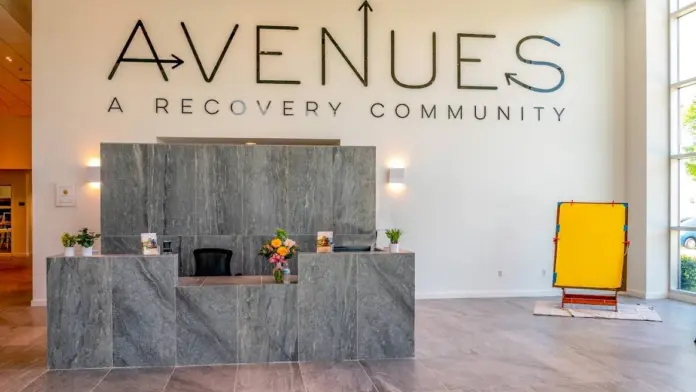


|
1
Top 10 Rehab in AZ
Rehab Score
Our Rehab Score is designed to make it easier for you to find the best treatment centers. We combine overall ratings with recent feedback to create a score that reflects a center’s quality right now.
8.90 / 10 | Soberman’s Estate, located in Cave Creek, Arizona, is an alcohol and drug rehab center that provides addiction treatment services to adult men, professionals, and public figures. They are a discrete, luxury rehab for individuals aged 30 to 80 years old. This location caps their treatment center at ten men at a time. As one of leading inpatient re | Treatments Programs Payment Options | Soberman’s Estate was everything I needed for my recovery. The staff, the program, physical activity and culinary experience were top notch and essential. The program is well designed and worked better than I expected. The staff is remarkable – professional, considerate and genuinely caring. My time there and being removed from alcohol for five weeks was everything I needed to remove my craving for alcohol. Soberman has changed my life in ways I never could have imagined. I feel confident, secure and grateful for my new life. I have reconnected with my family and friends. Thank you Soberman.
George B.
4 months ago
Yes, very professional staff, treatment, therapist, chefs were good! even the home cook did the best she could, and loved the horses of Course! Saturday morning hiking was fun to explore the trails of the nearby mountain area!
John E Williams
4 months ago
I had a great experience overall and would recommend it to anyone wanted to jump start their sobriety!!
Kevin Crawford
4 months ago
| 
5 5 



| |
1
Top 10 Rehab in CA
Rehab Score
Our Rehab Score is designed to make it easier for you to find the best treatment centers. We combine overall ratings with recent feedback to create a score that reflects a center’s quality right now.
8.81 / 10 | All In Solutions Detox in Simi Valley is one of the best ranked inpatient detox facilities in California providing safe, medically supervised care for individuals beginning their recovery from drug or alcohol addiction. As part of the All In Solutions Behavioral Health network, this facility serves as the first step in a full continuum of care. Cli | Treatments Programs Payment Options | Amazing place they helped me get my faith back and I really enjoyed the groups. It was honestly the best treatment I have been to and I have been to guide quite a few. Thank you so much
chris carter
1 week ago
The staff and community were incredible. Very accommodating!
Kyle Forbes
1 week ago
Great place. Great staff. Hepsibeth is an excellent counselor!
Ryan McDonald
2 weeks ago
| 
5 5 



| |
5
Top 10 Rehab in LA
Rehab Score
Our Rehab Score is designed to make it easier for you to find the best treatment centers. We combine overall ratings with recent feedback to create a score that reflects a center’s quality right now.
8.80 / 10 | St. Christopher’s Addiction Wellness Center is an addiction rehabilitation facility in Baton Rouge, Louisiana. The center opened in 1998 with the vision of offering affordable addiction treatment. They have a residential treatment program for men along with outpatient treatment services available to men and women. They view substance use disorder | Treatments Programs Payment Options | St Christopher was a wonderful experience for me to get sober, learn about Alcoholics Anonymous, and learn about the disease and about myself. The staff from the front office down were fantastic, before, during, and after treatment. I would recommend this place to anyone
Todd Landry
6 months ago
I have been a professional interventionist since 2010. I was introduced to this program in 2012. I have been referring there since then. My clients have always had a positive experience and the clinical and support staff are the most responsive and knowledgeable. They want what’s best for the client and the family and have long term options. They do very well young adult males and most recently I referred a 69 year old man first time treatment. It was a family member and he’s doing very well and committed to 90 days of treatment. I can’t thank the clinical staff and administrators enough for the program they have created. Please contact me if you would like to know more. Thank you STC!!!
asher levine
8 months ago
This is my first time doing IOP and I luv it Mike Ramos is the best my family even luvs him good person great attitude he as a way of wanting to do right and stay right and you can tell he is genuine about his job unlike miss star he as a way of teaching addiction were you understand it always keep Mike and his little dog brisket he’s a big part of Saint Christopher’s
Cedric Banks
1 year ago
| 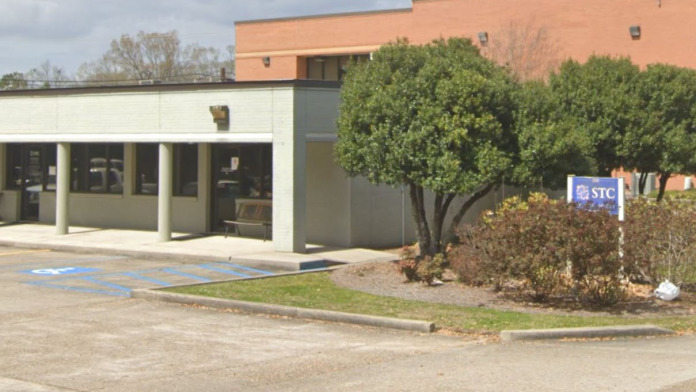
5 5 



| |
Boca Recovery Center – Bloomington Alcohol & Drug RehabAd This is an ad and Boca Recovery Center – Bloomington Alcohol & Drug Rehab is a paid advertiser. Paid advertisers may be listed first in search results. This ad may contain content provided by the advertiser. Rehab.com does not verify ad content or any reviews that are displayed. Learn More Bloomington, IN | The Boca Recovery Center is a luxury alcohol and drug rehab center for adults in Bloomington, Indiana. They specialize in cutting edge addiction treatment provided in a residential setting. Boca Recovery Center Bloomington is a luxury addiction treatment center in Bloomington, Indiana, offering medical detox, residential treatment, and partial hosp | Treatments Programs Payment Options | View Website (930) 203-1400 | Incredible place to find yourself, great sense of community. The entire staff truly cares about the well being of clients
Isaiah
1 week ago
Great place they do great work recommend it to anyone who needs the help
Alex Lewis
1 week ago
Really guud experience
Checkers –
1 week ago
| 
6 6 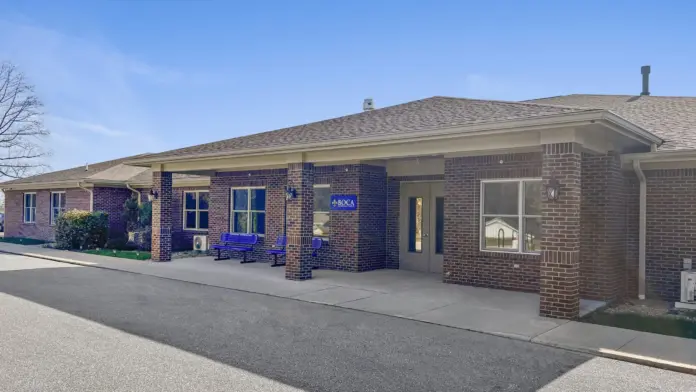


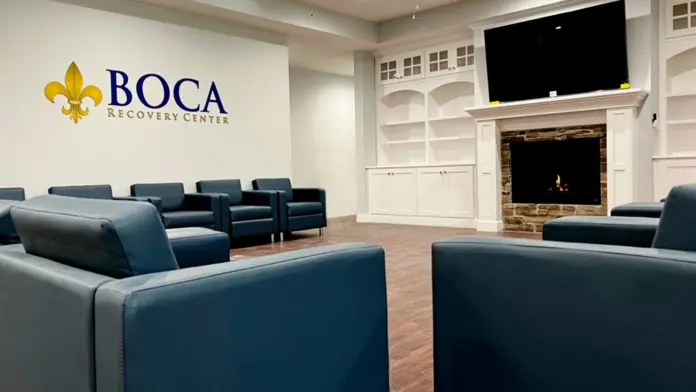
|
1
Top 10 Rehab in TX
Rehab Score
Our Rehab Score is designed to make it easier for you to find the best treatment centers. We combine overall ratings with recent feedback to create a score that reflects a center’s quality right now.
8.80 / 10 | Symetria – Hurst Outpatient Rehab and Suboxone Clinic in Hurst, Texas, is a private drug rehabilitation clinic for adults. One of the best outpatient rehab centers in Texas, Symetria offers various withdrawal medications to help clients get started with their recovery journey. You’ll also have access to treatments such as the intensive outp | Treatments Programs Payment Options | Symetria is unbelievably amazing!!! The Hurst staff is phenomenal!!! I can’t imagine that another location has a better staff. A special shout out to Deborah, Benjamin, and Samantha of course. You all are doing amazing, amazing, selfless work. You all are very special to so many!!!
Vernon Godsey III
4 months ago
Huge shout out to the team at symetria who make me feel like family I appreciate everything they do and huge shout out to Osagie for helping me! He is AWESOME!!! I love you symetria❤️❤️❤️
Chloe Roseman
4 months ago
BEST PLACE EVER. I have tried various other doctors/clinics and none of them even begin to compare to this one. The staff here is absolutely amazing. I can’t even make a single complaint. Dr Son is the best as well. He explains everything and you truly feel like he understands you. I can proudly say this, this place saved my life. If you or someone you know needs help getting off opiates do it right the first time and come here. You won’t be disappointed. If you are specifically struggling with fentanyl please don’t waste your time with other ways. I have tried 6 other methods from lazer therapy to having the earpiece to suboxone. Methadone is the key to our current fentanyl crisis. This clinic makes recovery possible again!
Mason
5 months ago
| 
5 5 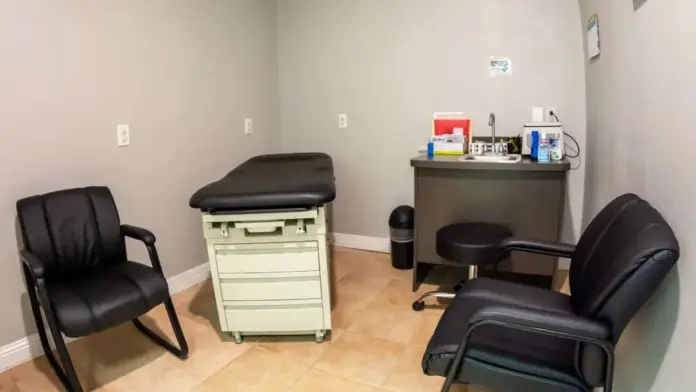



| |
1
Top 10 Rehab in FL
Rehab Score
Our Rehab Score is designed to make it easier for you to find the best treatment centers. We combine overall ratings with recent feedback to create a score that reflects a center’s quality right now.
8.80 / 10 | All In Solutions Counseling Center is a mental health center and addiction treatment program in Boynton Beach, Florida. They provide a partial hospitalization program, an intensive outpatient program (IOP), an outpatient program, medication-assisted treatment, and mental health care for adults with substance use disorder. All In Solutions Counseli | Treatments Programs Payment Options | The staff were amazing. Can really tell the people care about you. Amazing people who have lived through the experience and recovery they are trying to show all of us. Can’t recommend it enough.
Tyler
3 weeks ago
such a good facility. love all the staff! nicole is an awesome therapist!
Sydney Shaw
1 month ago
All In Solutions received me with open arms for the second time. The staff make sure you receive a high quality care treatment. I’m grateful for the love and care . God continue to bless everyone.Thank you for you do .
Jianil Richiez
1 month ago
| 
4 


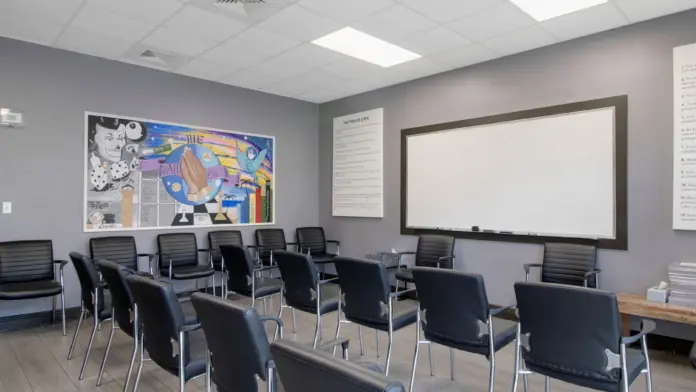
| |
1
Top 10 Rehab in NJ
Rehab Score
Our Rehab Score is designed to make it easier for you to find the best treatment centers. We combine overall ratings with recent feedback to create a score that reflects a center’s quality right now.
8.80 / 10 | Boca Recovery Center – Galloway is a drug and alcohol rehab in Galloway, NJ. They provide inpatient addiction treatment and medical detox. Boca Recovery Center Galloway is a 22-bed addiction treatment facility in Galloway, New Jersey, offering medically supervised detox, residential care, and outpatient programming in an upscale, evidence-based | Treatments Programs Payment Options | My experience was very professional and helpful! The detox and rehab experience has made an impact on my life and future, I am very grateful for the staff and my therapist Ashley was absolutely amazing. The time I spent here, they provided good attention to what has to be focused on.
Anna Mattina
2 weeks ago
Great facility, was absolutely the best move I could’ve made! Staff, nurses and chefs are top notch! Wanna start getting well, Boca jersey is the place to come and get help!
Meagan Stranninger
3 weeks ago
My sobriety journey started at Boca. The staff members including Miss Tracey, Hannah and Kevin their alumni coordinator have completely flipped the trajectory of my life. I was immediately taken in with open caring arms and they made my detox process as comfortable as possible. During my stay, Joe was extremely helpful in helping me slowly gain my appetite back and start to feel stronger and was so attentive to my nutritional health. Nurse Patrick was so kind to me during my intake and Kevin still reaches out to me very often to check in and is so helpful in my recovery process. I owe gaining my life, my strength and my family back to Boca and I am eternally grateful❤️
Rianna Dean
1 month ago
| 
7 7 
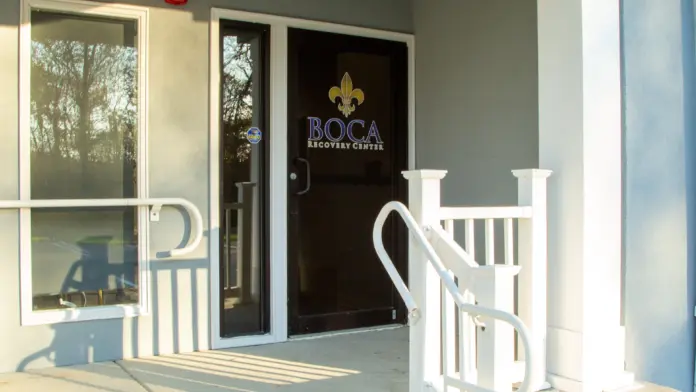


| |
1
Top 10 Rehab in TN
Rehab Score
Our Rehab Score is designed to make it easier for you to find the best treatment centers. We combine overall ratings with recent feedback to create a score that reflects a center’s quality right now.
8.77 / 10 | If you’re looking for a Christian-based men’s drug rehab center, S2L Recovery in Woodbury, Tennessee, might be the place for you or your loved one. Located at the top of Short Mountain, and overlooking the green hills of Middle Tennessee, this residential and detox clinic boasts a one-to-one staff/patient ratio so there’ll always be someone t | Treatments Programs Payment Options | Coming from Canada, I was hesitant. But God knew that S2L was exactly where I needed to be. At 64 years of age, I was able to discover my true identity, purpose, and mission in Christ. They help you in trying to get clean and sober for sure. But what S2L and the staff are all about is the Gospel of Jesus Christ. That’s why it is so successful.
TIM TANNER
4 months ago
I’ve had the privilege of seeing the life-changing impact this ministry has on countless men & I can’t recommend it highly enough! God has His Hand on this ministry & I’m honored to see the Lord work in these men!
Hunter Stanfield
4 months ago
Come here with a open mind and heart. It can and WILL change your life in all ways. Trust the process and trust God! Could go on and on about how amazing this place, I’ll forever be grateful!
Trevor Woodard
4 months ago
| 
6 6 



| |
7
Top 10 Rehab in CA
Rehab Score
Our Rehab Score is designed to make it easier for you to find the best treatment centers. We combine overall ratings with recent feedback to create a score that reflects a center’s quality right now.
8.76 / 10 | Rise in Malibu is a secluded drug and alcohol rehab program in Malibu, California. They deliver Joint Commission accredited detox, inpatient treatment, medication assisted treatment (MAT), and aftercare services to adult clients. Their campus boasts luxury amenities and a seaside view. Detoxification at Rise Malibu takes place in its luxury residen | Treatments Programs Payment Options | Received wonderful care here. From the moment I entered the facility, I knew I was in good hands. Something obvious about Rise early on is the amount of care and interest the team has in you and your recovery. At every point of my journey, I was confident that the team had my best interests in mind. The location is gorgeous and comfortable. Every day I looked forward to the engaging group therapies, the kind and friendly conversations I enjoyed with staff, and the wonderful food prepared by the chefs. I highly recommend Rise if you find yourself in need
Zeke Bluestone
1 week ago
Rise in Malibu exceeded my expectations at every level. The setting is peaceful and restorative, but what truly stood out is the care. The staff treated me with unconditional respect, compassion, and professionalism from day one. Therapy was thoughtful and individualized, combining clinical depth with holistic options that supported both physical and emotional healing.
The program structure provided accountability while still allowing space to breathe and reset. Group sessions felt safe and meaningful, and the one-on-one work helped me understand patterns and build real tools for life outside treatment. Even the daily routines, meals, and amenities reflected a genuine commitment to wellness and dignity.
If someone is looking for a place that balances clinical excellence with humanity and respect, Rise in Malibu delivers. I’m grateful for the experience and for the foundation it gave me moving forward.
Candice Wild
1 week ago
Rise truly changed my life. From the moment I arrived, I felt genuinely cared for by every member of the staff (even the nurses). The environment was warm, supportive, and welcoming in a way that immediately put me at ease. I came in feeling very anxious and unsure of what to expect, but the care and kindness I was met with made a huge difference right away.
The techs Luke and Tessa were incredibly kind, attentive, and present throughout my stay. They consistently showed up with patience and compassion, and it was clear they truly cared about the clients (they’re all easy to get along with). Nam, the house manager, was amazing and played a huge role in making the house feel like a real home. His presence, and care for everyone created a sense of safety and community that made a difficult time feel manageable.
What stood out most was how well everyone got along. There was a strong sense of connection not only between clients, but between staff and clients as well. The groups and therapy sessions were extremely helpful, thoughtful, and well run. I learned a great deal about myself, my patterns, and the tools I need to stay grounded and present.
This experience helped me through a very dark period in my life when I felt myself beginning to slip. Rise gave me clarity, structure, and insight at a moment when I really needed it. I left feeling stronger, more self aware, and better equipped to move forward. I highly recommend Rise to anyone who is struggling and looking for genuine support and meaningful growth. I’m writing this lengthy review because I truly mean it. Couldn’t have asked for a better place to start my journey of sobriety – so thank you 🙂
Justin Chi
1 month ago
| 
6 6 



|





